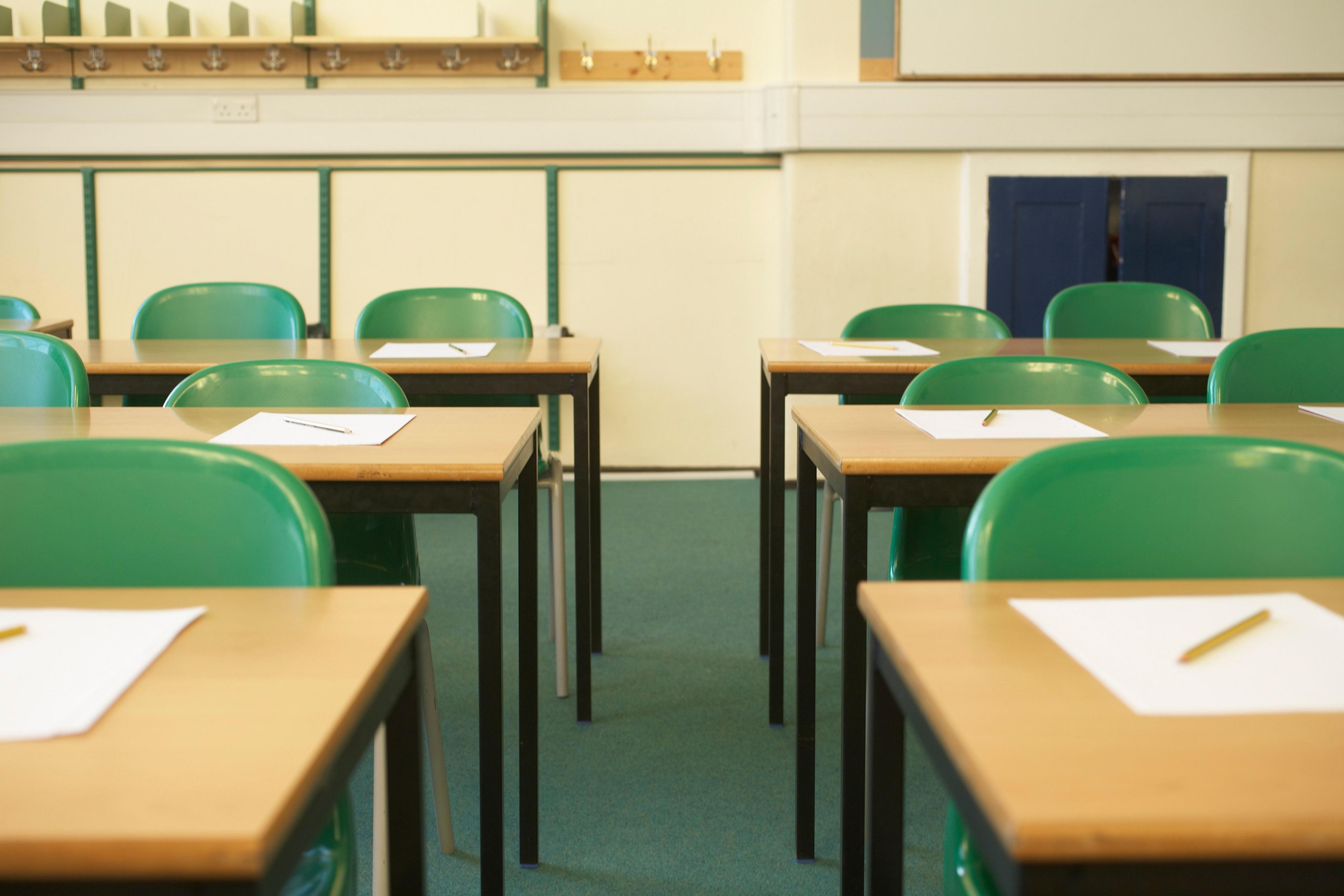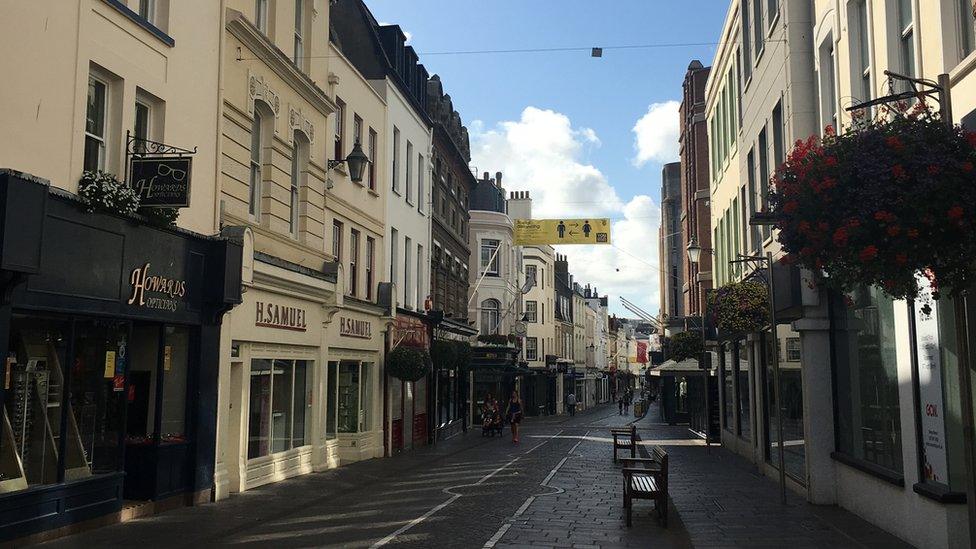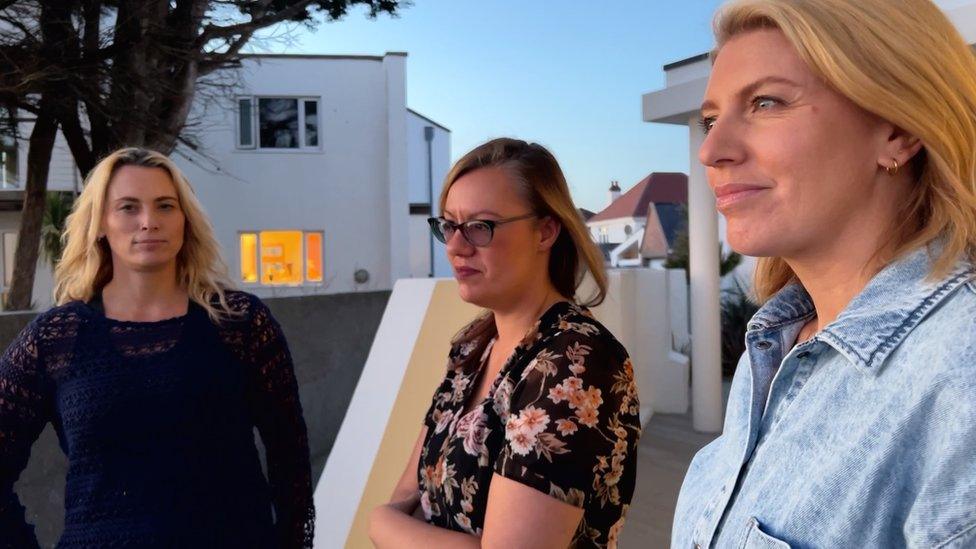More than 25% of autistic pupils regularly absent

Deputy Rob Ward said La Passerelle was only part of the solution
- Published
More than a quarter of children with autism in Jersey are persistently absent from school, a BBC Freedom of Information request has found.
In the school year of 2022-2023, out of 213 pupils with autism, 55 were persistently absent from school.
According to government guidance, for a child to be classed as persistently absent they would miss more than 10% of the school year.
Deputy Rob Ward, the Minister for Education and Lifelong Learning, said: "The figures were higher in 2021-22 and have come down slightly, work has been done on training staff and getting the autism team out into schools."
'Emotional strain'
According to the National Autistic society, children who have autism can find the demands and environment of school “almost unbearable” leading to absence or even outright refusal to go to school.
Callan, 10, stopped going to mainstream school a year ago and said it had taken a big toll on his mental health.
He said: "In autism your emotional health is more deeply connected to your physical health than neurotypical people and I was super sick quite a lot of days, I’d say in total across the school year, I had to take five to eight weeks off because of how sick I was due to all of the emotional strain I was under."
For Callan the large class sizes were one of the main challenges he faced: "One class I was in had 30 people so it was quite hard for me, because with my autism I have social anxiety, I find it difficult in large social situations and that made it hard for me to learn."
He now goes to La Passerelle, which was set up two years ago to help children who were struggling in mainstream education and has a large number of students with neurodiverse conditions like autism.
The school aims to help children get back into mainstream education, something Callan said he was now looking forward to.

Callan said he struggled in mainstream education
In some cases children with autism find school so challenging that they stop going all together.
Beth, who asked we not use her real name to protect her child’s identity, said her son who has autism has not been to school for two years.
She said the "large space, large crowd, different kind of smells, anything can be overwhelming for my son, and now he just refuses to go".
Beth said school had a severe impact on her son's mental health: "There was a lot of tears, he will hurt himself, he will throw himself into the furniture, when he is in that mode he doesn’t know the dangers around him."
She said home schooling was not easy: "I have become very isolated, I have been unable to work due to looking after him at home, I’m torn because I want my son in school, I want him to have an education, but at the same time is it worth my son’s mental health, I’m torn by those decisions every day."

Tiarni has regularly missed school because of anxiety
Children with other neurodiverse conditions like ADHD are also affected.
Tiarni, 15, has ADHD and is awaiting an autism diagnosis and only recently completed a full week of school for the first time in four years.
She said: "It’s so difficult for me because of my anxiety and ADHD, waking up every morning and having panic attacks thinking, oh what’s going to happen to me in school."
Tiarni said bullying, a lack of support in school and struggles around dyslexia all contributed to her being regularly absent from school.
Like Callan she moved to La Passerelle and things have improved but it has taken its toll on her and her mum Rachel Kelly.
She said seeing her daughter miss school was "heart breaking because she is so capable, she is not a naughty child, she has never got in trouble for her behaviour in school."
Ms Kelly runs ADHD Jersey, a non-profit supporting people with ADHD, and said she regularly heard stories of school avoidance and refusal.
She said: "I would say that a lot of children that should be in school with neurodiversity aren’t going in, there is nothing there for them, the only place for them is La Passerelle and that’s what is so upsetting."
While going to La Passerelle has really helped Tiarni, Rachel said she thought funding, staff and limited places restricted what it can achieve.

Rachel Kelly, founder of ADHD Jersey, praised La Passerelle but said it could not help everyone
The minister for education and lifelong learning, said: "We are working very hard to refurbish La Passerelle secondary school so there is a better suited environment for young people to get back into the school system.
Mr Ward said La Passerelle was only part of the solution and he was looking at ways to better support neurodiverse children in mainstream schools.
He said: "We need to support children in that environment, support young people to be successful in school and in as many ways we can possibly do that, and that depends on the relationship between parents and staff to do the best for young people."
The UK charity Ambitious about Autism analysed Department of Education statistics and found the same issues in the UK with more than a quarter of autistic children persistently absent from the school.
Danae Leaman Hill, from the charity, said: "I think Covid has really exacerbated the loneliness and isolation that autistic young people are quite vulnerable to anyway. It has been a huge aggravating factor that has impacted young people’s confidence to go to school and stay in school."
Lesley Harrison, from Autism Jersey, said: "Having young people absent from school is a concern.
"We want everyone to have the same opportunities, we want them to have an education that they can develop and be part of the community."
She said: "The government are very aware of the challenges, which is why we are working in partnership with them, everybody has a role to play, so the strategy we are working on will involve government professionals, parent carers, autistic individuals, neurodiverse individuals, but we have to do this together."
Follow BBC Jersey on X (formerly Twitter), external and Facebook, external. Send your story ideas to channel.islands@bbc.co.uk, external.
- Published3 August 2021

- Published14 October 2022
